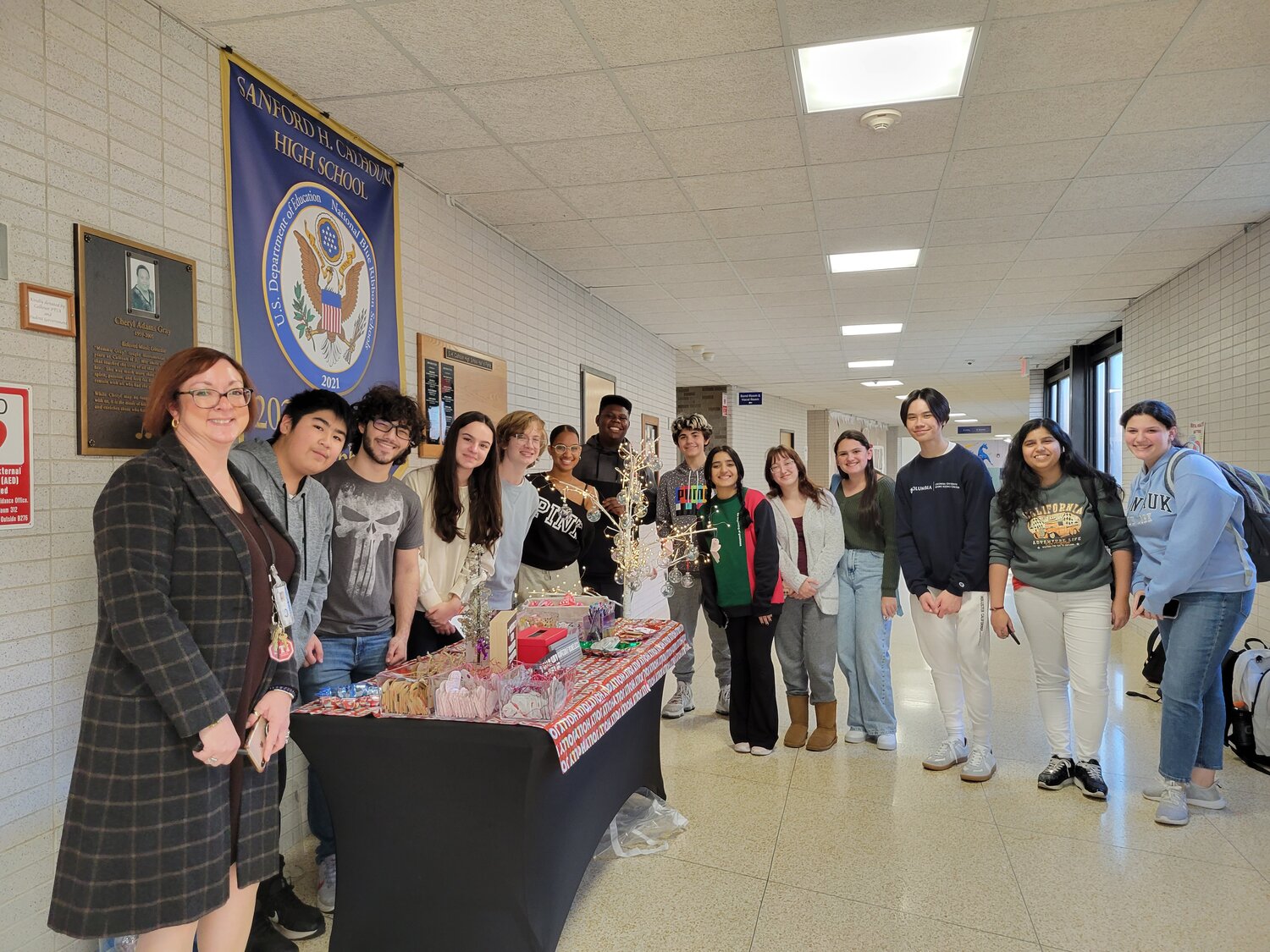Calhoun High School's OHO Lab 'opens hearts' through origami
For most of his life, Joseph Darcourt has visited the Chuang Yen Monastery, a Buddhist institution in upstate New York, learning about the power of connection and meditation. It was there that Darcourt learned about the monastery’s free book-distribution program, which sends books at no cost to prisoners in county, state and federal prisons across the country, and to soldiers in the U.S. military.
Seeing a way to connect this program to his own community, Darcourt, 17, a junior at Sanford H. Calhoun High School, created the OHO — Open Heart Origami — Lab to do just that.
Darcourt was raised Buddhist, he explained, and his upbringing was focused on human connection and spiritualism. An accomplished cellist, he recently graduated from Juilliard’s pre-college program, in which he spent many Saturdays training intensively in Manhattan, perfecting his craft.
The coronavirus pandemic, Darcourt said, inhibited his ability to visit the monastery in 2020, but in the summer of 2021 he was able to return.
“I felt alive again, because it was there I grew up,” he said. “I could reconnect with Mother Nature, in a way, after being isolated for a year and a half.”
Leaders of the monastery told Darcourt about the book exchange, and he spent that summer helping them wrap books to be mailed out, and reading letters from prisoners who wrote back to the monastery.
The books that are mailed out are educational Buddhist material, meant to help prisoners through difficult times, as they reflect on their mistakes and, and leaders of the monastery hope, they learn from them. Darcourt said that a prisoner will typically write to the monastery and explain either that they are requesting a book for the first time, or that they’re in need of a second or third text in their journey. Sometimes, they’ll include personal stories, which Darcourt said can really resonate with a letter reader.
“There was one letter that struck me specifically,” he recounted. “He mentioned his story a little — when he was 15, he made a mistake — and he didn’t specify, of course. He said he didn’t really understand it at the time, but spending almost 20 years in jail by now, you know, he wanted to better understand that mistake, but also life in general. He wanted to learn.”
Darcourt learned how to make open heart origami — a paper heart with a slit in the middle, where a note can be written — when he was in fifth grade. He asked leaders at the monastery if they could include them with the packages, and they agreed. It was then that Darcourt decided to bring his efforts back home.
He began organizing program for teenagers at the Merrick Library, where his peers could earn volunteer hours while making the hearts. In his experience with earning community service credits, Darcourt said he didn’t always feel like he was making a difference, but the OHO Lab changed that.
“When we would hold these events, it was really fun,” Darcourt said. “It didn’t feel, like, formal or anything — everyone just felt connection just talking to each other and making art.”
Some of his friends suggested that he bring the OHO Lab to Calhoun as a club, and school administrators were all for the idea. Though meetings have taken a short hiatus lately because of Advanced Placement exams, the club meets every Wednesday after school.
Darcourt said he believed the club’s work has helped his peers break down societal biases about prisoners, because the students see the good in one-time lawbreakers wanting to learn. “Everyone has to learn from their mistakes,” he said. “It’s also symbolic in a way — like, open your hearts, open heart origami — open to different people and different experiences. It’s just one avenue of being more inclusive.”
The notes the group writes to prisoners includes sayings such as “Life can be so challenging sometimes, but love will overcome. Most importantly, learn from your mistakes, forgive yourself, and love yourself,” or “What defines us is how we rise after falling.”
Gabby Pernice, one of Darcourt’s classmates and a member of the OHO Lab Club, said she’d like to see it expand other schools. “Not only does it provide community service opportunities, but it’s a safe space for many of the people involved,” Pernice said. “Giving back to those who want to change for the better, there isn’t a more heartfelt feeling. You feel good helping others, and you get people, like prisoners, on the right track again.”
“Ending the day by making beautiful origami hearts and talking with my friends is relaxing,” Asra Iqbal, another club member, added. “Knowing that I’m helping a person somewhere in the world makes me realize a lot of things, and just makes me want to become a better person.”
With the help of his mom, Darcourt formed a nonprofit to help spread the mission and reach of the OHO Lab. For more, visit OLifeClass.org.
“It’s really about connection,” Darcourt said. “Not just us writing it together and doing it together, but also to the recipient, thinking about ‘how they wrote this letter for me,’ and the intention put into it. You can see it’s handmade and authentic.”







